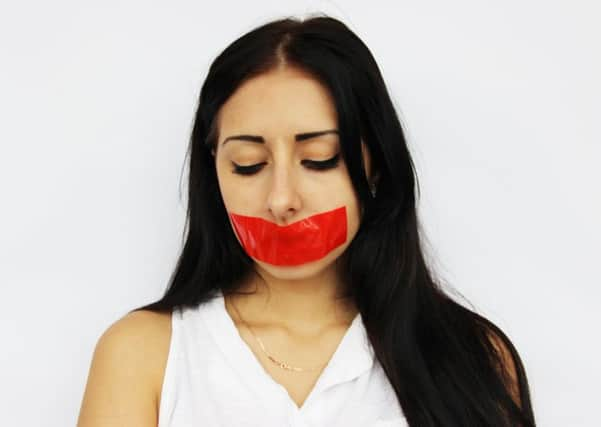Peter Hoffmann: There's no such thing as total freedom of speech


The concept of freedom of speech is so important –it’s why the notion has been discussed so much over the centuries. The more liberal or libertarian your views, the more likely you are to support Voltaire’s declaration: “I despise what you say, but will defend to the death your right to say it.” It’s regarded as the core principle at the heart of Western democracy.
However, the reality is there is no such thing as free speech, even in the United States where appropriately enough it’s the First Amendment in its constitution. The evolvement of the principle and how it’s been tempered was nicely captured a century ago by Supreme Justice Wendell Holmes’ view that freedom of speech does not include the right to maliciously shout “Fire!” in a crowded theatre. And neither does it give you the right and freedom to slander, publish sexual material about children, reveal state secrets etc.
Advertisement
Hide AdAdvertisement
Hide AdFor centuries we in the U.K. have enjoyed what philosophers called a negative liberty, ie the freedom to do or say what we wished, unless it was specifically constrained. Our rights in the UK have since been expanded under the European Court.
The value in identifying the two polar positions on freedom of speech helps Parliament to seek out, agree and apply that elusive balance. Good and mature governance recognises and applies that balancing act in addressing the current dilemmas between the extremes of no state intervention or the opposite – government control – and where they should place themselves on that spectrum.
By way of example, 250,000 terrorist/extremist websites have been removed from the net recently, mainly because they are regarded as a greater threat in terms of radicalising young people than the prevailing culture in some mosques.
Such intervention raises important questions. If you take the extreme view there must be complete and uninhibited free speech you would argue such sites should be left alone and available; whereas a government’s first duty is to try to protect its citizens. Thus, seeking out that elusive balance resulted in an interventionist approach.
For those concerned that the government may have a hidden agenda on reducing our fundamental rights, it gives some solace to know the independent reviewer of terrorism legislation is Alex Carlile, Baron Carlile of Berriew, one of the country’s best legal minds, and importantly a liberal democrat by nature.
Perhaps the last word should be left to a poet. Louis MacNeice captures the dilemma well: “How little, a precious little, in life is fixed: On the one hand this but on the other that; Justice must lie between and truth betwixt.’”
Peter Hoffmann is a writer and currently working on an athletics book Postcard From Olde Meadowbank A Life In A Day In A Year, 1973-1978